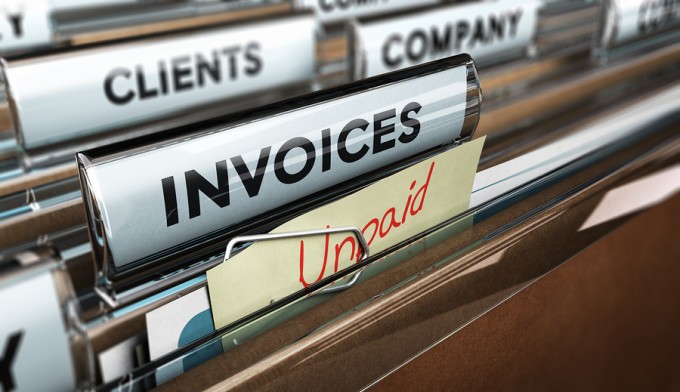5 Top Tips for Effective B2B Credit Control

During my time in business, I have come across many people who view credit control as their worst nightmare. The idea of ringing customers to ask for payment can be a daunting thought for many; however, from my experience, it is a daunting task because of lack of confidence in the task at hand. Confidence can make all the difference to being successful at credit control and it can easily be increased by understanding and having the knowledge of the correct processes and procedures that make a credit control department effective.
Ensure your invoicing procedures are up to scratch
Whilst it may be obvious to say, invoicing is a vital aspect to your business being paid on time. Gathering the information for your invoices should begin before any work has been carried out, including the full legal entity of your prospective customer, company registration number, address etc. You should also ensure you know who the invoice should be sent to, and whether you are able to email it across or your customer requires it to be posted. You should also confirm any invoicing requirements that you must adhere to, for example: purchase orders, backups such as POD or timesheets; check the original contract to find stipulations or, if they aren’t in the contract, ask your customer directly.
Credit control should be customer focused
Credit control can be sometimes incorrectly called the ‘anti sales’, however, credit control should work closely with the sales team to maintain positive customer relationships as well as ensuring payment will be received on time. Credit control and sales are the two customer facing roles, therefore customer service skills are vital for both roles.
Structured and planned credit control can make all the difference
Having structured credit control procedures in place can make an enormous difference to collection performance overall. Many times people will leave chasing until cash flow has become tight, but keeping up consistent contact with your customer will not only build upon the relationship, but you will also start the process of subconsciously educating your customer on when to expect your call and as a consequence they will pay you more quickly.
Manage disputes effectively
The faster your disputes are resolved, the faster you will receive payment. Unfortunately some customers will not let you know about a dispute until a payment is already overdue, so finding resolution quickly is essential. If you notice that a customer is continually disputing their invoice for minor or spurious reasons, I suggest that you begin your chasing prior to the invoice falling due, not necessarily to ask for payment, but to ensure that any issues that come up can be resolved by the due date.
Monitor your debtor days
Setting targets is always a great incentive to chase more effectively; find out what your current debtor days are, and monitor them on a monthly basis. By doing this you also make it easier to identify problem accounts that are increasing the debtor days. I often find these are disputed accounts that have yet to be dealt with, so showing an account manager that it is their account affecting debtor days will often provide an incentive to clear the matter more quickly.
These are just five tips out of many that will go towards making your B2B credit control department effective; by understanding the correct procedures, knowing your customer and knowing an account history, you will not only be able to speak to you customer with confidence, but also convey to your knowledge to your customer (which will go a long way).
If you are struggling with your B2B credit control and want an expert to carry out your collections in a customer focused way, then our Outsourced Collections could be an ideal alternative.
